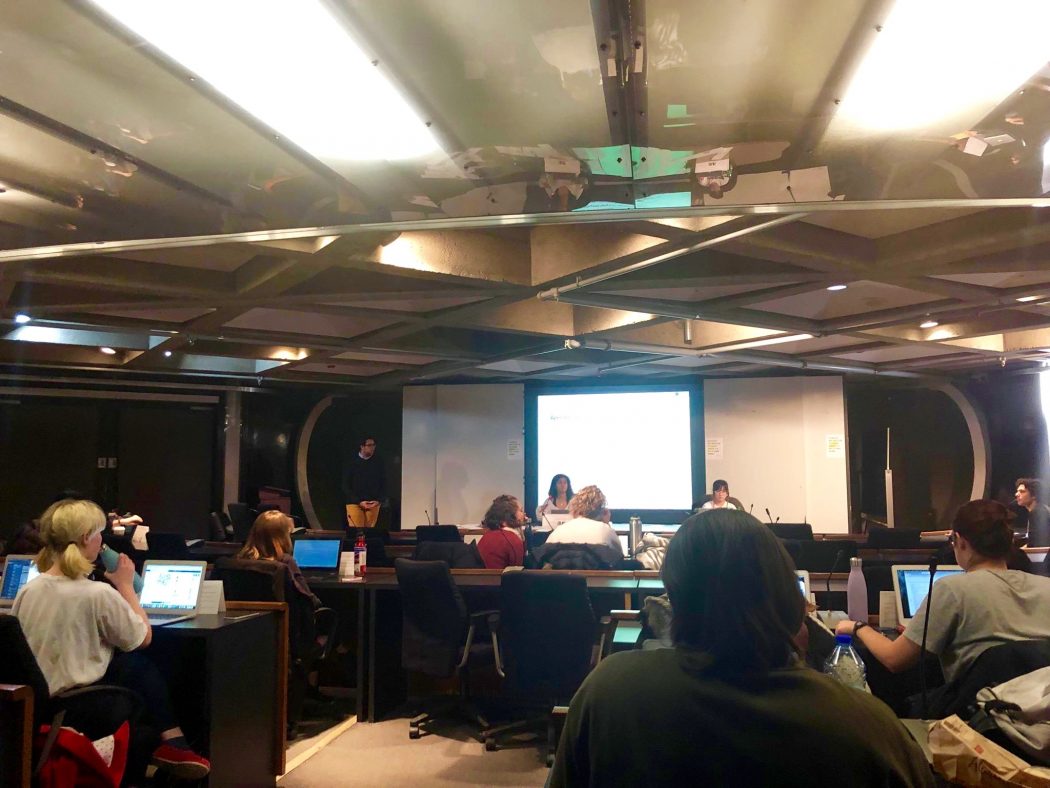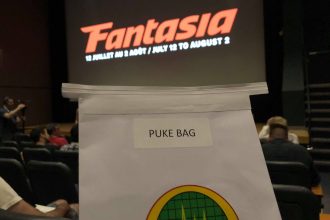Debate Over Controversial Course
On January 30, the Legislative Council voted down the Motion to Approve the POLI 339 Summer Course Fee (14 nay/13 yea/9 abstentions), in a highly contentious meeting. Over the past few weeks, the Arts Undergraduate Society (AUS) has been considering whether or not to approve POLI 339, a proposed course offered by the Political Science Department in partnership with the Hebrew University of Israel. This course would raise a charge of $1000, for various fees associated with attending, including transportation, lodging, etc.. However, the AUS must first approve this fee-measure.
Some students brought up concerns about McGill holding a course in Israel, which they allege is unfair to students from certain countries who would be unable to participate due to political tension. Others felt the presence of a double standard in the disapproval of POLI 339, considering that a motion approving a similar measure for an exchange course in Italy passed with ease at the same session.
Furor over Quick Fix
The Legislative Council met on February 14 at six o’clock p.m. in Leacock 232, with the raucous of Bar des Arts just out of earshot. Originally scheduled for February 13, the council session was pushed back to the evening of Valentine’s Day due to the snow day. On February 8, the AUS Executive Committee held a private vote amongst themselves to overturn the earlier motion. The AUS’ statement, which was released on February 12, cited a lack of necessary information at the initial Council meeting and pressing deadline as reasons for holding the confidential meeting. Informing the student body via email, their decision was met with uproar.
Almost immediately, the Secretary-General suspended the result of the Executive Committee vote to investigate claims that it was “undemocratic and unconstitutional.” The Secretary-General is the AUS’ regulatory body, responsible, among other things, for holding the Executive Committee accountable to their constituents.
The Controversy Continues
With the SSMU parliamentarian moderating, the Council began with approval of the minutes from the January 30 meeting. This procedural matter, which normally goes to an immediate vote, was drawn out due to councilors finding errors in the minutes from the prior session. One councillor brought up that the transcript incorrectly said that he had called the makeup of the room “ethnic.” Another councilor disputed the minutes’ exclusion of his treatment by the dias at the earlier meeting, stating that he wanted to include the chair’s refusal to hear his point of personal privilege in the account.
Commitment to “Safe-Spaces”
After the minutes were approved, a motion was moved by the representatives from the McGill Environmental Students’ Society (MESS) and the Political Science Students’ Association (PSSA) to ban the video and audio recording of Legislative Council meetings. The MESS representative stated that the AUS had a duty to “ensure safe-spaces and comfort in legislative meetings….videos can be weaponized…this is an effort to protect [sic].”
There was immediate pushback from some councilors, with several raising concerns over transparency and potential conflict with Quebec law. The Philosophy Students’ Association (PSA) representative pointed out that, “we spent longer than we ever have amending minutes…it would be far more accessible and fair to allow recording.” The Canadian Student Assc. of Undergraduate Students’ (CSAUS) representative echoed those sentiments: “I don’t see any reason why the bylaws should prohibit streaming. I see no reason why people should be embarrassed about what they say…it is on the record after all.” A friendly amendment passed, giving the AUS Legislative Council the power to approve recording of open sessions by campus press by a two thirds majority, and the motion itself was voted into effect.
I see no reason why people should be embarrassed about what they say… it is on the record after all
AUS Execs Questioned Over Private Meeting
Visibly shaken, AUS President Maria Thomas began the question and answer period concerning the Executive Committee’s actions by stating that she was upset and promising to rectify the Executive Committee’s earlier vote. The President was followed by VP Academic, Chloe Kemeni. Kemeni, also seemingly distressed, stated: “I didn’t want this to happen. I’m sorry I couldn’t do more to stop this. I voted against calling an emergency council [as] the deadline was very arbitrary. I tried my best to support Maria in the conversation and essentially calm it down because it was getting super hostile [sic]. I had a statement but fuck that… I’ve been supporting Maria and Rebecca in being as transparent as possible…if there’s anything more I can do to clean this shit up please let me know.”
Rebecca Scarra, VP External, also issued an emotional statement echoing the sentiments of the President and VP Academic. Arts Representative Andrew Figueiredo defended the actions of Executive Committee stating, “we followed the letter of the Constitution and the bylaws…I apologize….emotions ran high among everybody…collectively we fucked up.”
Immediately, the Executive Council came under intense questioning from representatives and members of the public. When questioned on the new information and time sensitivity cited in the email statement, members of the Council explained that a syllabus had been privately released by the professor advocating for the course, and that same professor pressured the Executive over deadlines for funding. The Council was then criticized by many for not standing up to faculty pressure, with one member stating, “The [student] organizations were founded on standing up to professors… you’re spitting in the face of the departmental organizations of the past.”
The [student] organizations were founded on standing up to professors… you’re spitting in the face of the departmental organizations of the past.
After a recess and the departure of Representative Figueiredo, many on the Council advocated for calling him back to answer questions concerning the affair, including VP External Scarra, who said: “I don’t know how to stay calm, an individual (Representative Figueiredo) just fucking left the room [sic].” Upon returning, Figueiredo stated “I’d like to stop people from attacking my character. I think it’s ridiculous the games being played here… I said that I am OK with the statement [put out by the council], so I’d like for people to stop lying about what I said.”
Several representatives commented on their treatment by the dais and the committee, claiming they were being discriminated against in regards to speaking time. Other members commented on the danger of weaponizing the language of social justice and mental health, and at one point the Council went into recess citing the absence of trained active listeners.
President Thomas defended her actions on the Executive Committee by saying, “When I was sharing my opinion, I was met with hostility and anger…it was demeaning of what I was saying and questioning my strength as a president…I fucking do my job and women of colour never take credit for that…people were coming forward with very militant [sic]… threatening to resign… maybe I was a bit militant.”
Next Steps
SSMU President Tre Mansdoerfer was in the gallery and commented on the procedural matters and legitimacy of the Executive Committee’s affirmation of the course fee. “I want to confirm that AUS should check in with [the Deputy Provost of Student Life and Learning] DPSSL… SSMU received the fee on Monday… AUS has to confirm with DPSSL that the fee will be removed.”
According to Article 12.3-.4 of the AUS Constitution, any action taken by the Executive Committee must be approved at a subsequent Council meeting. Failing such approval, the motion lapses and is considered unconstitutional. As such, the AUS Executive must inform the DPSSL that their earlier approval of the fee is not in effect and any raising of such fee would be against the wishes of the student union. While the Secretary-General continues their investigation, it remains to be seen how the McGill administration will handle this matter.
When members of the Executive asked what they could do to rebuild student trust moving forward, they received mixed answers. Jamal Tarrabain, VP Communications, proposed bringing a motion to Legislative Council condemning the Executive Committee’s actions. Members of the gallery called for the release of the Executive Committee’s group messages surrounding the decision and for the resignations of certain members of the Executive team, such as Representative Figueiredo. Others went so far as to threaten impeachment. It remains to be seen what concrete actions the AUS Executive Committee will take to regain the trust of the student body.
An earlier version of this article misstated the date of the AUS executive’s vote. The decision vote was held on February 8, not February 12.



“Wahh it’s not safe to record the meeting!” Grow up! You’re an elected representative, aka a PUBLIC figure, and Council meetings are PUBLIC. Don’t like it? Simple! Don’t run for office! And I don’t even want to know what a “trained active listener” is or why on Big Suze’s green earth these children couldn’t have a meeting without them present. Just one more reason AUS needs to be burned down and rebuilt from the ground up. Otherwise it risks total irrelevancy.